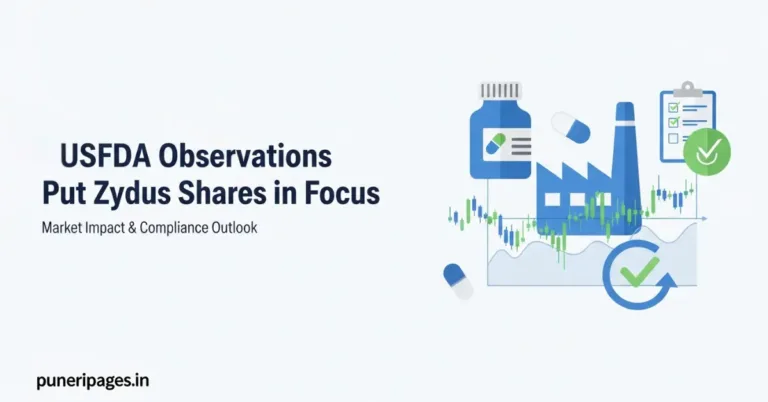
Don't become the next victim — learn how to secure your money from insider bank fraud. Read more on puneripages.in.
🔍 Introduction
In a shocking revelation that has rattled Pune’s financial community, a private bank employee from a well-known national bank has allegedly siphoned off a staggering ₹4.58 crore from customer accounts using unauthorized transactions, forged documents, and abuse of internal access. The fraud, which unfolded over several months, came to light after vigilant customers noticed unusual deductions and failed returns on promised investments. The scammer reportedly used fake credentials and sophisticated social engineering techniques to win trust and bypass standard checks. Law enforcement agencies and the bank’s internal investigation team have since swung into action, launching a detailed probe into how the breach occurred and who else might be involved.
As financial scams evolve in complexity, the importance of staying alert and adopting smart financial habits cannot be overstated. In this article, we not only outline what happened but also provide six essential tips to help protect your hard-earned money from similar threats.
🧠 What Happened in the Pune Bank Scam?
According to the official report filed with Pune Police, the accused—an employee entrusted with customer accounts—systematically manipulated internal systems to initiate unauthorized fund transfers. The scam went undetected for months due to the insider’s access privileges and knowledge of bypassing standard checks.
Victims, some of whom were senior citizens and high-value account holders, reported discrepancies only after failing to receive promised returns or noticing large sums missing from their accounts. The fraudulent activities reportedly began around late 2023, with some victims interacting with the accused over several months. The Economic Offences Wing (EOW) has registered a case under relevant sections of the IPC and the IT Act, and is currently investigating whether additional bank employees or third-party agents were complicit in the scheme.
This incident underscores the broader issue of insider fraud, where rogue employees exploit their trusted positions for personal gain—highlighting the need for tighter surveillance and more rigorous auditing systems.
🛡️ Six Ways to Protect Your Finances from Bank Fraud
1. Monitor Bank Statements Regularly
Make it a habit to review your account statements weekly. Don’t just look for big withdrawals—fraud often starts with small, unnoticed transactions to test account vulnerability.
2. Enable Real-Time Alerts
Activate SMS, email, and app push notifications for every debit, credit, and login attempt. Real-time alerts serve as your first line of defense and can help you act quickly.
3. Never Share Sensitive Information
No genuine bank employee will ever ask for your PIN, OTP, CVV, or password. If someone does, assume it’s a scam. Hang up and report immediately.
4. Use Strong and Unique Passwords
Choose complex passwords that mix uppercase, lowercase, numbers, and symbols. Avoid obvious combinations like birthdays or names and update your passwords every 90 days.
5. Report Suspicious Activity Immediately
The faster you report a fraud, the better your chances of recovering the money. Contact your bank’s fraud helpline and simultaneously register a complaint with your local cybercrime cell.
6. Ask for Written Confirmation of Investments
If a bank employee suggests an investment or scheme, demand printed or digital documents as proof. Even if documents are presented, cross-verify them through official bank channels or consult the RBI’s list of approved products. Fraudsters may forge convincing paperwork, so double-check authenticity before committing your funds.
🔎 How Banks and Authorities Are Responding
In response to the scam, the concerned bank has suspended the accused employee and issued statements assuring full cooperation with police investigations. They’ve also promised stricter internal audits and tighter access control policies to prevent insider abuse.
Banks are now being reminded to adhere more closely to RBI’s customer protection guidelines, which include:
- Mandatory grievance redressal timelines
- Digital logging of all financial transactions
- Regular KYC verification
- Surprise internal audits
Furthermore, banks are expected to increase customer education campaigns, especially for elderly or digitally naive users who are more vulnerable to such attacks. A recent statement from the Pimpri Chinchwad Cyber Police emphasized the urgency of raising awareness, noting that timely education can prevent future losses. Some banks have already begun launching digital literacy drives and hosting community workshops to help users better recognize and report suspicious activity.
💬 Final Thoughts
The Pune scam is a stark reminder that financial safety is a shared responsibility. While banks must uphold strict security protocols, customers must also remain vigilant.
Make cybersecurity a part of your daily life: double-check transaction messages, question unexpected deductions, and don’t hesitate to escalate issues. Awareness, caution, and swift action are your strongest tools.
Stay safe. Stay informed.
❓ FAQs
1. What should I do if I suspect fraud on my account?
Immediately call your bank’s customer service and block your card or account. File a report with the nearest cyber police station.
2. Can banks refund money lost to insider scams?
Banks may compensate victims after internal investigations, but the outcome depends on the bank’s policies and the nature of the fraud. According to RBI guidelines, customers may be eligible for a refund under zero liability or limited liability conditions if they report unauthorized transactions promptly. Always document and report any suspicious activity without delay to strengthen your case.
3. How can I identify a fake investment offer?
Look for proper documentation, check if the scheme is listed on your bank’s website, and verify details directly with the bank branch.
4. What are the warning signs of an insider scam?
Unexpected withdrawals, delayed receipts for investments, and verbal-only promises should raise red flags.
5. Are senior citizens more at risk?
Yes, due to limited familiarity with digital banking. Family members should help monitor their transactions and educate them on fraud prevention.
6. What tools can I use to track account activity?
Use apps like BHIM, Google Pay, or your bank’s official mobile app for real-time tracking. You can also try financial trackers like MoneyView and Walnut.
7. What role does the RBI play in consumer protection?
RBI mandates secure transaction norms, periodic audits, and prompt redressal mechanisms through its Ombudsman Scheme.
8. Is online banking safe now?
Yes—if you follow best practices like using updated devices, enabling two-factor authentication, and avoiding public Wi-Fi.
9. How often should I review my account activity?
Ideally once a week. Set calendar reminders to review your balance and recent transactions.
10. Where can I learn more about scam prevention?
Follow RBI’s website, your bank’s official channels, or visit puneripages.in for regular fraud awareness tips and updates.






